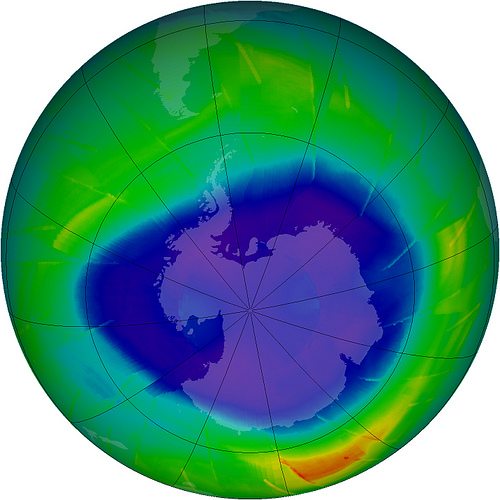

Environment
Closing ozone hole may heat up Antarctica, says scientist
The hole in the earth’s stratospheric ozone layer over Antarctica is slowly closing, but its effect on climate change is still uncertain, a scientist has claimed.
The Antarctic ozone hole was detected in 1985, when the discovery was published in the journal Nature. The researchers speculated that this was connected to increased levels of the organic compounds known as Chlorofluorocarbons (CFCs), used in refrigerators and aerosols, in the atmosphere.
The Montreal Protocol was drafted to restrict the use of substances like CFCs that deplete the ozone layer. It is estimated that if the protocol is adhered to, then the ozone layer will repair itself by 2050.
However, on Thursday Dr Adrian McDonald from the University of Canterbury in New Zealand said that ironically, the depleted ozone might have indirectly protected Antarctica from greenhouse gas-related warming.
“With the ozone recovery, the future of Antarctic climate is less certain, though the complex interactions in the atmosphere associated with climate change makes this region particularly hard to predict,” he said.
“The increasing ozone hole has until now acted to change the circulation of the Southern Hemisphere so that the strong winds linked to the jet streams have moved towards the pole.
McDonald plans to head to Scott Base on Ross Island in Antarctica in November to deploy a set of wirelessly connected weather stations to study atmospheric conditions in the area.
He predicts that the closing ozone hole could also affect conditions in New Zealand and elsewhere.
“The future recovery of the Antarctic ozone hole and increases in greenhouse gases will have significant impacts on the wind circulation in the southern hemisphere.
“The temperature difference between the poles and the equator controls wind patterns over New Zealand, which could potentially mean increased-rainfall on the West Coast or dryer Canterbury Plains.”
Further reading:
East Antarctic ice sheet ‘not immune’ to climate change
Arctic Ocean more affected by global warming than Antarctic
‘Unprecedented’ warmth of Arctic in 2012 saw ice melt to record low
NGOs disappointed as Russian delegation blocks Antarctica protection plan
































